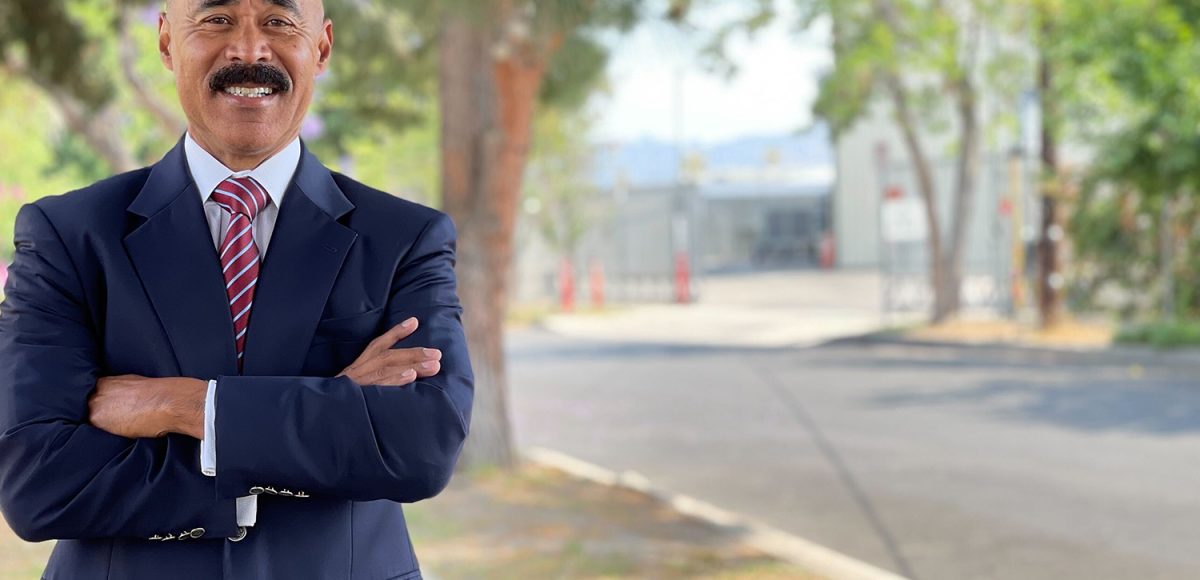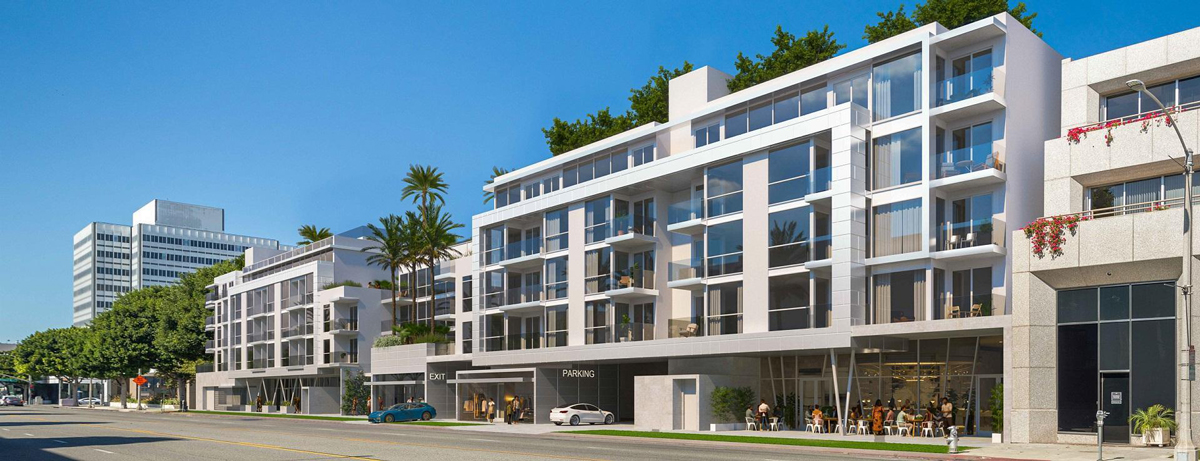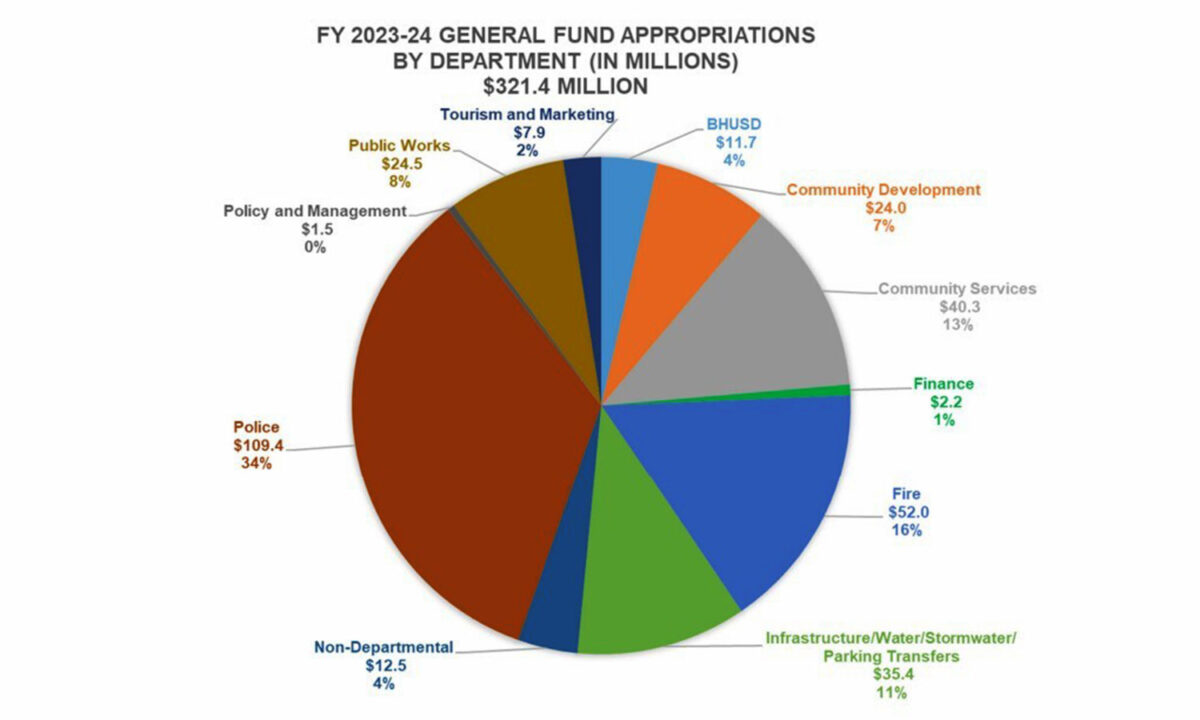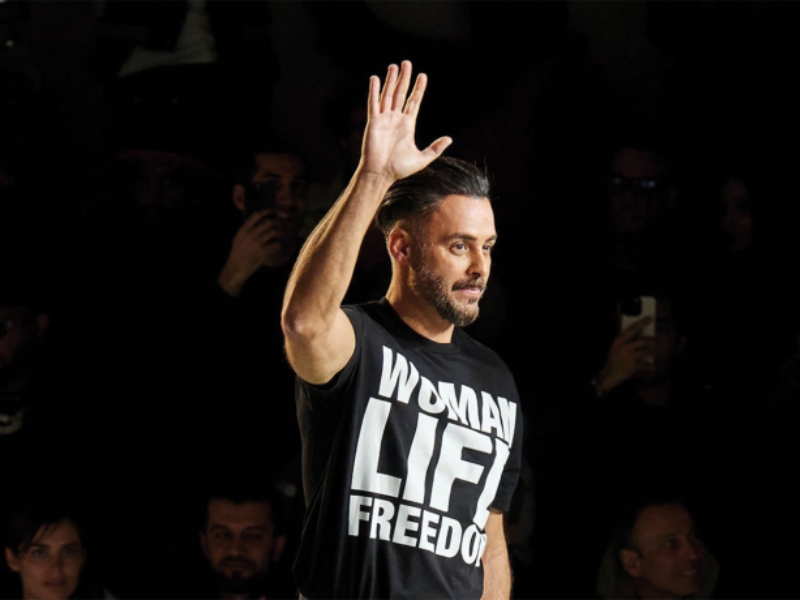Even though Beverly Hills has its own police department, voters in the city will still have a say in the county’s next top lawman. In the closely watched race for Los Angeles County sheriff, Sheriff Alex Villanueva faces challenges from six other individuals with law enforcement backgrounds, including LAX Police Chief Cecil Rhambo.
Rhambo, who grew up in Compton and South Los Angeles, joined the Los Angeles Sheriff’s Department straight out of college, where he spent the next 33 years of his career. Following his time in the Sheriff’s Department, Rhambo also served as Assistant City Manager for the City of Carson and as City Manager of the City of Compton.
Sheriff’s deputies patrol unincorporated areas of Los Angeles and a handful of cities that contract with the department, including West Hollywood and Malibu. With 10,000 sworn officers and 8,000 sworn staff, the department is the largest sheriff’s department in the country.
The Courier spoke with Rhambo about his experience in law enforcement and local government and why he feels he’s right for the job.
Beverly Hills Courier (BHC): Most of the people in Beverly Hills right now are very concerned about crime following an uptick in violent crime in the city – most notably in December with the murder of Jacqueline Avant. The Sheriff’s Department obviously has limited involvement in places like Beverly Hills. What role do you envision having as Sheriff in terms of addressing crime across the county?
Rhambo: I spent 33 years in the department and, at one time, commanded all of gang operations for the county, at least for the sheriff’s side. When there are multi-jurisdictional crime trends, we form task forces, cooperate and work collaboratively with other agencies. Knowing that, they come to our custody no matter where they’re arrested in LA County. The suspect that killed Jacqueline Avant is in custody downtown. There’s a little bit of a nexus to everybody in LA County as it relates to the criminal justice system and the Sheriff’s Department, be it civil, when they go to court, or they end up in our custody, or we work jointly with the task force, even including the state or the Feds.
BHC: You have said that you would welcome oversight as Sheriff. Villanueva has a strained relationship with the County Board of Supervisors and the Civilian Oversight Commission. What kind of relationship would you seek to have with them, and how do you see that playing into your vision for the department?
Rhambo: It should be professional. The supervisors realize that the Sheriff is elected by the entire county of Los Angeles, and they’re elected by a district. They intuitively know that we’re electoral peers. We’re not subordinate to the Board and certainly the Board is not subordinate to the Sheriff. There has to be a working relationship and a professional relationship. Where we will have robust discussion that I certainly welcome is, for instance, the closure of Central Jail. Do we close it and rebuild, do we close it and not rebuild? I’m certainly willing to have a discussion about that, but at the end of the day, all of us – both sides of that fence – are responsible for the overall public safety of the people out in the community.
BHC: You’ve positioned yourself as a more reform-minded candidate, as opposed to a traditional tough-on-crime approach; would that be fair?
Rhambo: That would be fair. I mean, I’ve done both. You can be tough on crime, but at the same time, there’s also ways to look at it from a broader perspective in terms of crime reduction. I think people shy away from terms like progressive or reform because, when I was doing it 20 years ago in Compton, for instance, and doing intervention and prevention programs, community engagement, community organizing, operating a Weed and Seed site paid for by the federal government. Bringing in gang and intervention workers to stop retaliatory gang crimes. Those were all considered to be progressive but were not popular. At the same time, I ran all of gang operations and the same people that I put in jail, we now have a relationship. I talk to them and they know me, they remember me from 20 years ago when I did search warrants on their houses.
BHC: Even the notion of reform and what it means to be progressive has changed significantly, especially in the last few years. Where do you see yourself in the modern landscape of criminal justice reform and public safety?
Rhambo: I’ve been in public service my entire adult life, literally since right out of high school. I have really embraced other ways to deal with the mentally ill, people that are drug addicted. But at the same time, I knew Tookie [founder of the Crips]. He grew up in my neighborhood. So, I know violent offenders. One of the first people I met when I went to Central Jail was Ken Bianchi, the hillside strangler. Evil is certainly out there. It has to be dealt with. But that doesn’t mean that you have to treat everybody with a broad brush.
BHC: The Sheriff’s Department operates out of West Hollywood, a community known for its inclusivity of marginalized groups – communities that do not have traditionally a good relationship with law enforcement. How do you address those relationships?
Rhambo: When I got promoted to sergeant, I went to West Hollywood. We did a lot of community engagement and we helped put on the Christopher Street West Parade. Understanding what Stonewall was [and] what the LGBTI community wanted to see out of law enforcement. Cruising was a big deal. Down on the east part of Santa Monica, you had a lot of cruising going on and even people that were part of the LGBT community didn’t like the fact that all these people were cruising in their neighborhood. So, we changed the traffic directions, and we did a little bit more enforcement, but we did it respectfully and treated people with dignity.
BHC: My understanding is that the LGBTQ community generally looks at anti-cruising laws as a way of targeting them.
Rhambo: It was requested by and supported by the City Council. It wasn’t something that we concocted; it was a response to a community outcry. People appreciate, they understand the the sexual freedom of the atmosphere, but they also didn’t appreciate that on their front lawns.
BHC: You say that Villanueva took a model for addressing homelessness that you helped build and “eroded it.” Could you elaborate on that model, and what you would do differently to rebuild it?
Rhambo: In 2004, I was tasked with bringing in what’s called a Community Oriented Policing Bureau. We were tasked with going out in [to encampments and] cleaning those up. We put together a team that had a doctor, because we found people that had some pretty interesting medical issues, we brought in a psych clinician, and we also brought in a public defender that could expunge minor violations.
At the end of the day, if people refuse help, you don’t want to criminalize their behavior, but you or I could not go camp in front of Gucci and live in a broken-down motorhome there forever. We just couldn’t do it. And so, things have to be done for the common decency and quality of life. That’s where the court system comes in, where you bring them into the court system for the violations, be it minor, and you divert them into programs.
BHC: Men’s Central Jail is the largest concentration of severely mentally ill individuals in the world. Critics say that the jail exacerbates illness and hurts individuals that need help. What would you do to address that?
Rhambo: The question is what should you do with these folks? I read the Cares First model that the county would like to do. What I fear is that we do “ready, fire, aim.” Don’t push them out to alternatives to incarceration if there is no capacity for it. And I guarantee you that, having been city manager in two different cities, it’s hard enough to get people to build affordable housing, much less alternatives to incarceration or alternatives to mental health housing. And so, the real question is, is the City Council in Beverly Hills as well as the residents going to support 100 bed space for people who are experiencing mental illness that may have committed a crime, but we don’t think they should be in jail. Can we put that in your city? That’s where the problem is going to lie.
BHC: The subtext of what I hear you saying, and tell me if I’m reading this right, is that the Sheriff’s Department and law enforcement in general has been put in a position of responding to a broad systemic failure that stretches back decades where everyone owns accountability for either inaction or the wrong action and that it’s not an easy answer.
Rhambo: You talk about social inequities and social economic inequities and why people commit crimes and things like that. My response is: law enforcement doesn’t create the environments of the people that we police. We are left with the aftermath of that, and a lot of the economic viability, the education system, our social justice system and all that is not something that we have control over.
BHC: Why should Beverly Hills voters vote for you?
Rhambo: Experience [and] understanding their community. I was working in Hollywood when the Menendez brothers took their parents’ lives. I have a lot of experience in understanding the communities in LA County. And understanding that when people come to custody or people go to the courts, every resident of LA County could be at some point touched by services delivered by the Sheriff’s Department.
More importantly, I think what I’m seeing now is probably the most politically divisive Sheriff I’ve ever seen in my 35, 40 years. The political environment now is already very acrimonious. And he’s only brought it to the local level now. And I think it’s unfortunate – it’s hard to get things done. Government works best when both sides of the aisle can communicate. I’ve got a history of being a collaborator and, yes, I want to bring in some reforms to police work, but at the same time, I’ve won awards for bringing down violent crime and also won awards for running the Hate Crimes Task Force. I’m a bigger package than “lock them all up,” and I’m not so far progressive that I’m for letting everybody out.







